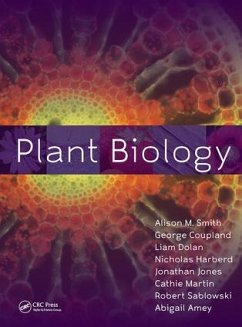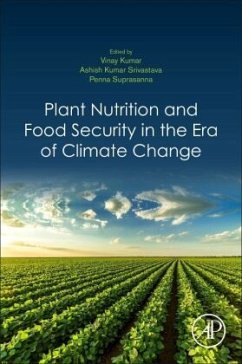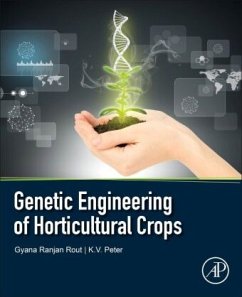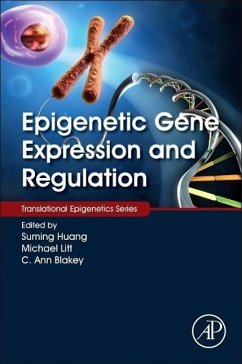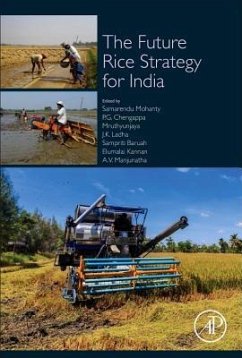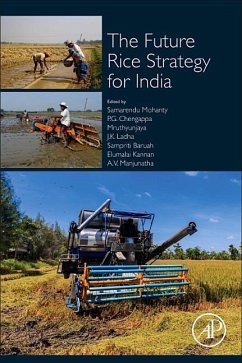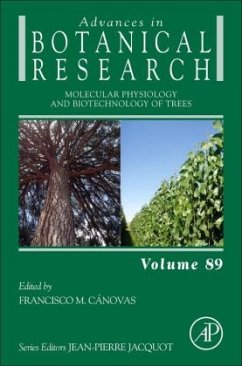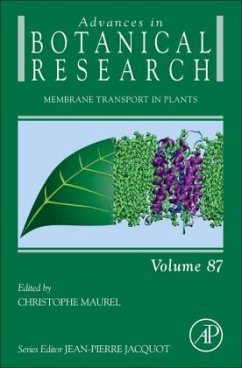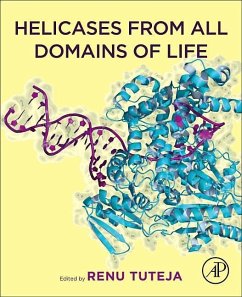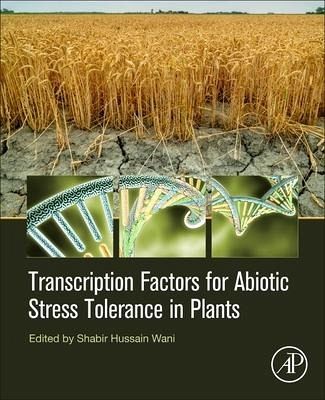
Transcription Factors for Abiotic Stress Tolerance in Plants

PAYBACK Punkte
57 °P sammeln!
Transcription Factors for Abiotic Stress Tolerance in Plants highlights advances in the understanding of the regulatory network that impacts plant health and production, providing important insights for improving plant resistance. Plant production worldwide is suffering serious losses due to widespread abiotic stresses increasing as a result of global climate change. Frequently more than one abiotic stress can occur at once, for example extreme temperature and osmotic stress, which increases the complexity of these environmental stresses. Modern genetic engineering technologies are one of the ...
Transcription Factors for Abiotic Stress Tolerance in Plants highlights advances in the understanding of the regulatory network that impacts plant health and production, providing important insights for improving plant resistance. Plant production worldwide is suffering serious losses due to widespread abiotic stresses increasing as a result of global climate change. Frequently more than one abiotic stress can occur at once, for example extreme temperature and osmotic stress, which increases the complexity of these environmental stresses. Modern genetic engineering technologies are one of the promising tools for development of plants with efficient yields and resilience to abiotic stresses. Hence deciphering the molecular mechanisms and identifying the abiotic stress associated genes that control plant response to abiotic stresses is a vital requirement in developing plants with increased abiotic stress resilience.
Addressing the various complexities of transcriptional regulation, this book includes chapters on cross talk and central regulation, regulatory networks, the role of DOF, WRKY and NAC transcription factors, zinc finger proteins, CRISPR/CAS9-based genome editing, C-Repeat (CRT) binding factors (CBFs)/Dehydration responsive element binding factors (DREBs) and factors impacting salt, cold and phosphorous stress levels, as well as transcriptional modulation of genes involved in nanomaterial-plant interactions.
Transcription Factors for Abiotic Stress Tolerance in Plants provides a useful reference by unravelling the transcriptional regulatory networks in plants. Researchers and advanced students will find this book a valuable reference for understanding this vital area.
Addressing the various complexities of transcriptional regulation, this book includes chapters on cross talk and central regulation, regulatory networks, the role of DOF, WRKY and NAC transcription factors, zinc finger proteins, CRISPR/CAS9-based genome editing, C-Repeat (CRT) binding factors (CBFs)/Dehydration responsive element binding factors (DREBs) and factors impacting salt, cold and phosphorous stress levels, as well as transcriptional modulation of genes involved in nanomaterial-plant interactions.
Transcription Factors for Abiotic Stress Tolerance in Plants provides a useful reference by unravelling the transcriptional regulatory networks in plants. Researchers and advanced students will find this book a valuable reference for understanding this vital area.




